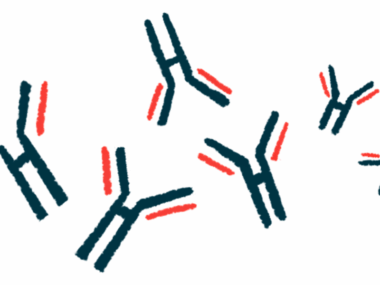Companies partner on customized Parkinson’s biomarker testing
Adx, Alamar to develop assays to support new treatment advances
Written by |

A new partnership will work to develop customized assays to detect and quantify blood biomarkers to support the advancement of new treatments for neurodegenerative diseases, including Parkinson’s disease.
Adx Neurosciences, which makes biomarker assays for neurodegenerative diseases, and Alamar Biosciences, a proteomics company with technology to detect biomarkers for such diseases, announced the collaboration in a joint press release.
“Our collaboration with Alamar Biosciences marks a significant step forward in our mission to support pharmaceutical companies advancing their therapeutic programs,” Koen Dewaele, Adx CEO. “Every phase in the search for a therapeutic, from preclinical work up to the launch of the ultimate drug, requires specific biomarker tools.”
An early diagnosis of Parkinson’s is key for starting treatment in the early stages. However, the process leading to the disease diagnosis often involves assessing a patient’s history and symptoms, along with several medical tests, since no single test can definitively diagnose the disease. Biomarker testing can help with diagnosis and also provide researchers with evidence of the efficacy of an investigative treatment.
Adx has developed antibodies able to detect alpha-synuclein, a protein that folds into an unusual shape that’s prone to clumping in the brain in a hallmark of Parkinson’s disease, in human cerebrospinal fluid. Cerebrospinal fluid, or CSF, bathes and protects the brain and spinal cord. Other antibodies in the company’s portfolio are those can detect blood levels of neurofilament light (NfL), a marker of nerve cell degeneration, and tau, a protein that may also form toxic protein clumps in the brains of people with Parkinson’s disease.
According to the company, these antibodies could be used to detect several neurological conditions. Adx collaborates with pharmaceutical and diagnostic companies to develop, produce, and commercialize biomarker detection tests that could help monitor a treatment’s effect or select patients who could benefit from treatments at an early disease stage.
Biomarker testing
The platform developed by Alamar, called Nulisa, uses two highly specific antibodies that form an immunocomplex when the protein target is present, which can be detected using a fully automated system called ARGO HT. This technology can detect and quantify extremely low levels of the target protein, and identify several proteins in the same sample, Alamar says.
“By adding the NULISA platform with its remarkable sensitivity to our range of possible platforms, it enforces our capabilities to support our pharma network in their search for tailor-made biomarkers,” Dewaele said.
Alamar has also developed a central nervous system disease panel of 120 neuro-specific and inflammatory proteins, including alpha-synuclein, NfL, and tau. The panel can detect these proteins in a small blood or CSF sample.
“By combining our NULISA platform’s ultra-sensitive detection capabilities with ADx’s extensive expertise in neuroscience antibody and assay development, we aim to accelerate the development of biomarker assays that can facilitate the development and approval of disease-modifying therapies for neurodegenerative diseases,” said Yuling Luo, PhD, chairman and CEO of Alamar.



